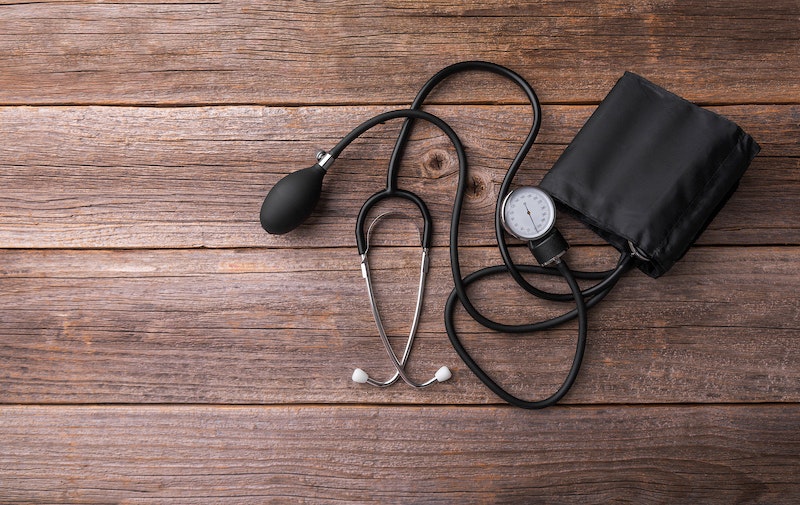What's a biometric screening? The phrase can call to mind sci-fi body scans or complicated tests. But it’s actually quite simple. It’s any measurement of your physical characteristics, such as height, weight, blood pressure, or blood sugar. These screenings can give you insight into your overall health, especially when they’re interpreted within the larger context of your family history, eating habits, stress levels, and medical conditions, says Natasha Bhuyan, MD, a regional medical director at One Medical, in Phoenix. “Data is empowering,” she says.
The term biometrics is increasingly used as shorthand by employers and insurance companies for health assessment, says Tracie Sponenberg, senior vice president of HR and a special expertise panel member for the Society of Human Resource Management.
Where to Get a Biometric Screening
Sometimes these screenings are done at work. Or your doctor might provide the same information at a checkup, and you can input your numbers as part of a healthy survey, like the one you take on Rally. You might also be able to go to a nearby health clinic for a biometric test. If you’re part of an employer-sponsored wellness program, reporting or improving your biometrics could even earn you incentives, such as gift cards and fitness gear.
No matter what, it’s smart to know your numbers and what they mean.
What's Included in a Biometric Screening?
Many biometric screening programs focus on four important numbers that have a big impact on your health. These numbers not only offer warning signs for potential health problems, but even better, the chance to make changes that could stop those health issues from developing. “It’s incredible how small changes to our eating habits or exercise regimen can have a massive impact on multiple biometric measures,” says Bhuyan. She recommends checking in with your primary care physicians about how to interpret any biometric screenings and what changes you might be considering.
4 Important Biometric Numbers
- Blood pressure. High blood pressure is a major risk factor for heart disease and stroke. But it often has no warning signs or symptoms, so people don’t know they have it. Ideally, for people with normal blood pressure, your top number (systolic pressure) should be lower than 120 and your bottom number (diastolic pressure) should be lower than 80. If your blood pressure is a bit high, a doctor may recommend tweaking your diet (less sodium, more fruits and vegetables), quitting smoking, or starting an exercise program.
- Blood Glucose (blood sugar). More than 90 percent of people who are prediabetic don’t know it. Learning your blood glucose numbers can potentially help you prevent or delay becoming diabetic, or help you make necessary lifestyle or medical changes to better control your sugars. If you have prediabetes and are overweight, for instance, losing even a small amount of weight (5 to 7 percent) can help cut your risk of developing diabetes. For people without diabetes, a fasting glucose under 100 mg/dL or A1C under 5.7 percent is normal.
- Body Mass Index or BMI. BMI is an easy and inexpensive way to measure body fat. Being overweight or obese brings with it an increased risk for high blood pressure, coronary heart disease, type 2 diabetes, stroke, some cancers, mental illness, and more. A BMI of 18.5 or lower is considered underweight, 18.5-24.9 is normal or healthy weight, 25-29.9 is overweight and 30 and above is obese. But keep in mind that “a high BMI in someone who is more muscular doesn’t mean we should automatically label them unhealthy,” says Bhuyan.
- LDL cholesterol. If your LDL cholesterol is too high, that puts you at risk for heart disease and stroke, the two major causes of death in the United States. If your LDL cholesterol is 190 mg/dL or higher, your doctor might prescribe cholesterol-lowering medication.
Wellness at Work
You might not expect to clock in at work and have a BMI screening or your blood pressure checked. But many employers are doing just that and making these tests available right on site, says Sponenberg.
The Granite Group, a plumbing and heating wholesaler based in Concord, NH, has made biometric screenings a cornerstone of their company’s wellness program. Some employees have described the screenings as “potentially life-saving,” says Sponenberg. That’s especially the case since some of those employees weren’t keeping up with regular doctor visits. “The biometric screenings gave them a look into what their health is like. That was, in the end, more important even than the potential premium deduction,” she says.
It’s important to note that workplace biometric health screenings are meant to supplement — not replace — regular doctor’s visits, says Paul Terry, CEO and president of Health Enhancement Research Organization (HERO), an organization devoted to the health and well-being of workers. The screenings put employees in prevention mode, rather than reaction mode, by helping them track their own health and flag when certain numbers are inching upward. And most employers go out of their way to make sure employees understand that participation is voluntary. If you’re not comfortable participating, you have the right to opt out.
The data from the biometric screenings (with employee-identifying information stripped out) can guide companies on what programs to offer. If most people in the office are battling high blood pressure, for instance, tweaking the breakroom snacks might take priority over scheduling a seminar on how to sleep better.
Because the bottom line is that biometric testing is meant to be another powerful tool to improve people’s health — and potentially kick-start some lifestyle changes.
Copyright © 2019 Rally Health, Inc. All rights reserved.
KATE ROCKWOOD
Rally Health





